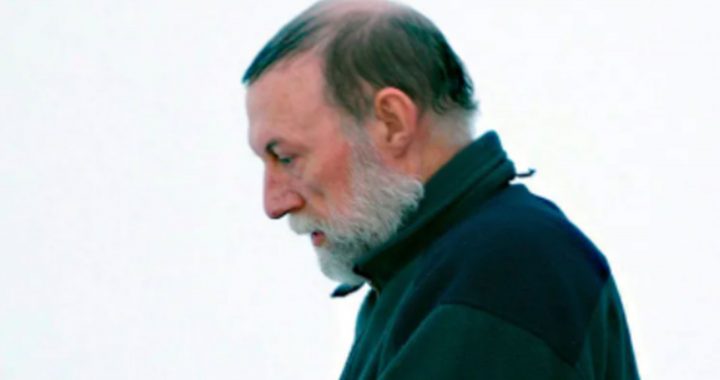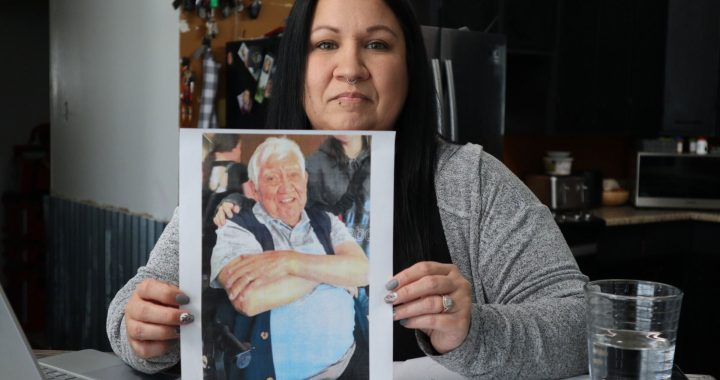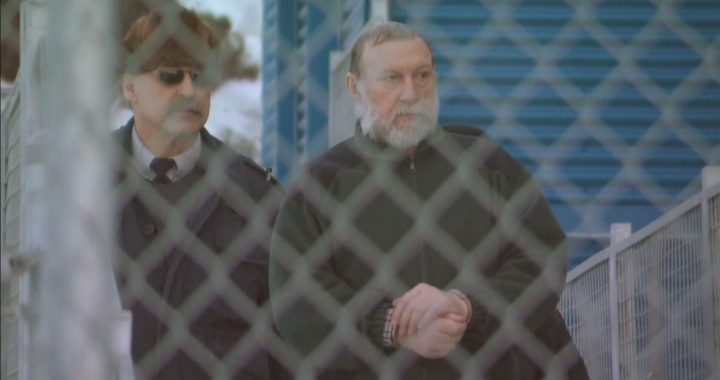
APTN News
Canada has lost an effort to have a ruling from the Canadian Human Rights Tribunal (CHRT) put on hold until the Federal Court heard a judicial review of its compensation ruling.
Specifically, Canada wanted the court to pause a Dec. 10, 2019 order to have the government meet with the parties involved to work out a plan to compensation thousands of First Nations children who were apprehended by the on-reserve childe welfare system.
Just two days after closing arguments, Justice Paul Favel returned with a decision: the Crown’s request to have the CHRT’s ruling put on hold until the judicial review is heard, as well, the First Nations Child and Family Caring Society’s request to postpone the same judicial review, were both denied.
“Much of the parties’ respective arguments revolved around the legality or reasonableness of the Compensation ruling,” Favel’s 12-page judgement, issued Friday, said. “These arguments relate to the merits of the underlying judicial review application.
“The AGC (Attorney General of Canada) has not satisfied the three-part test to stay the decision of the CHRT’s Compensation Ruling,” Favel wrote. “Accordingly, the AGC’s motion is denied.”
Cindy Blackstock, the executive director of the First Nations Child and Family Caring Society, says this is another win for children.
“Canada’s conduct in this case has been completely contrary to reconciliation and the Indigenous litigation guidelines the government adopted,” she said in a written statement Friday. “Canada now has another important choice to make – either it drops its judicial review and fully complies with all of the Tribunal’s orders and ends discrimination in other federally funded public services, or it will continue to fight against victims.
“It is their choice to make as a government and whatever choice they make Canadians should make them famous for it.”
It’s not clear whether the government will now sit down at the table with Blackstock, the Assembly of First Nations and the other interested parties.
But according to Kevin Deagle, spokersperson for Indigenous Services minister Marc Miller, the government won’t appeal the decision.
“Nothing changes our strong belief that we must compensate First Nations children harmed by past government policies,” said Deagle in an email.
“We will continue to seek a solution that will provide comprehensive, fair and equitable compensation for First Nations children in care.
“We can accomplish this through constructive conversations with partners about how to better compensate all affected children.”
So far the government has been unwilling to sit down with the parties involved at the tribunal.
On Sept. 6, the CHRT ordered compensation for thousands of First Nations children who suffered harm and discrimination through the on-reserve child welfare services.
It ordered Canada to pay $20,000 to any child apprehended for causes other than emotional, sexual or physical abuse. It also awarded an extra $20,000 because it found the discriminatory policies of the government were “willful” and “reckless.”
One bureaucrat pegged the overall settlement cost at nearly $8 billion.
The matter has been before the tribunal for over a decade, starting with an initial discrimination complaint filed by with the tribunal in 2007.
In its latest legal challenge, Justice Canada and ISC asked the court to pause the the multi-billion dollar settlement, arguing it would cause irreparable damage to Canada’s judicial system because of its resemblance to a class-action settlement – something the Tribunal is not technically allowed to rule on.
The crux of the Crown’s arguments rested on the desire to come to a compensation plan “free of the tribunal’s shackles,” stating that individual compensation was “not an appropriate remedy for this complaint” since it originated as a systemic discrimination complaint.
Because the government invested in Indigenous health resources, Frater argued, the “discrimination” alleged by the plaintiffs was effectively resolved.
They also argued that the compensation ordered was “disproportionate as between individuals” (different children suffered different harms)” and “exclusionary,” as it does not include children apprehended prior to 2006.
In his ruling, Favel concedes that the Attorney General’s complaints are valid, writing that he sees “no prejudice or harm to Canada in engaging in discussions with the parties on process and to report back to the CHRT” by Dec. 10, 2019.
However, the tribunal announced on Wednesday that it was extending its deadline for parties involved because it felt forced by Canada to do so.
In a letter to the parties involved in the case, the Tribunal responded to a request from the Attorney General to have a Dec. 10 deadline moved back in order to “assist” the court.
“The panel feels “cornered” and does not appreciate it,” lawyers Edward Lustwig and Sophie Marchildon – who are overseeing the case at the tribunal – wrote in their letter.
The Tribunal ruling, Favel writes, does not stand as an order to “pay compensation to any specific individuals by a specific date.”
During the hearings, lawyers from the Assembly of First Nations argued that Canada’s only obligation moving forward was to take a seat at the table and discuss a plan addressing the concerns of all stakeholders.
Once an imminent compensation plan is in place, Favel writes, “the parties can consider their respective legal options at that point in time.”
For their part, the caring society asked Favel to consider an abeyance – or temporary suspension – of the judicial review “in the best interests of justice,” so that parties could confer with the Tribunal.
Favel agrees that the only requirement is to have discussions and report back to the Tribunal by their new set deadline, Jan. 29, 2020.
“This will not be a wasted exercise,” he wrote, reiterating his reasons for denying the Attorney General’s motion to stay.
“The parties are free to outline the nature and scope of their discussions before the CHRT,” the ruling reads. “In my view, these discussions will not prejudice the parties’ respective approaches in the underlying judicial review. The parties’ affidavit evidence indicates that there are many knowledgeable people around the table who are more than capable of moving this part of the discussion along.”
If, however, the process before the CHRT takes a long time, then one or more of the parties in question can proceed with a judicial review.
According to Favel, the prospect of a future judicial review will “provide incentive for the parties to use the time before the CHRT to expedite good faith discussions with one another.”
Among the issues to be discussed is the procedure for identifying individuals, and whether eligible parties would be compensated via trust funds for minors or direct payments to adults.
During the hearings, the caring society also asked for the opportunity to discuss the matter of costs, an approach that Favel says he agrees with and will consider moving forward.
@aptnnews
Correction: APTN News originally reported that Canada failed to have a ruling from the Canadian Human Rights Tribunal struck down. Canada asked for a pause in ruling until a judicial review was heard. The court denied that request.











life goin to school here left me with bad memories;
If only the 8 billion in costs could be advanced and applied to health, education, housing and clean water for all FN children and their families. This would contribute so much more to the present and future goals of reconciliation, rather than handing out a set cash payment to individuals that has no defined contribution to the well being of generations to come.
The system YOU demanded.
Why did Trudeau challenge the ruling anyhow?